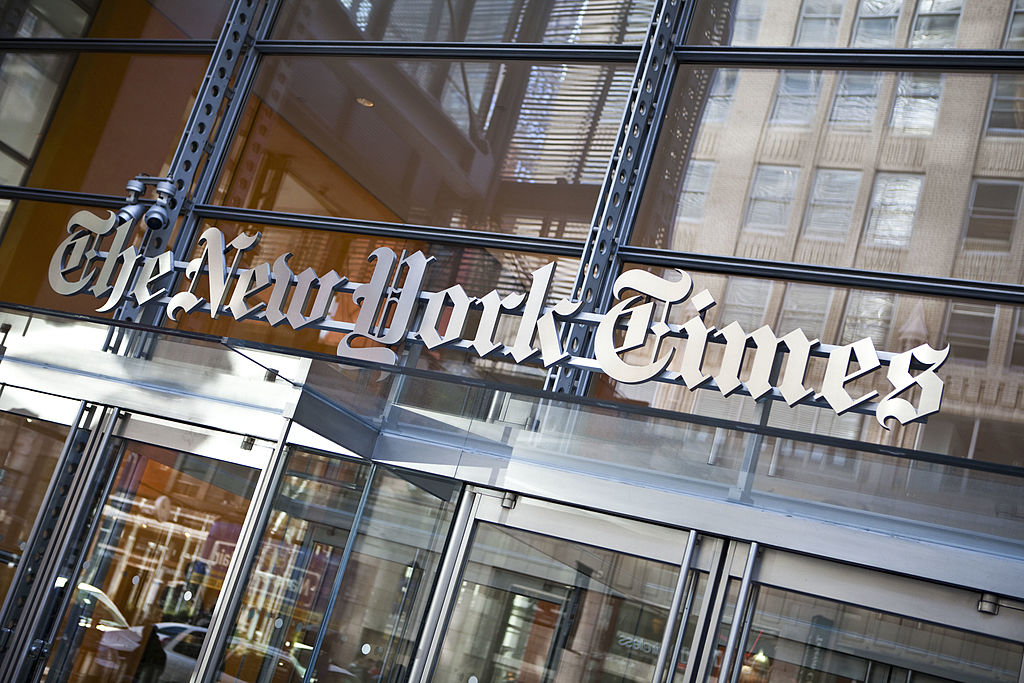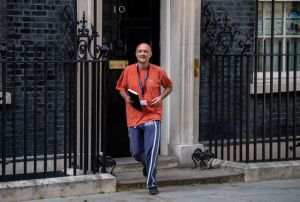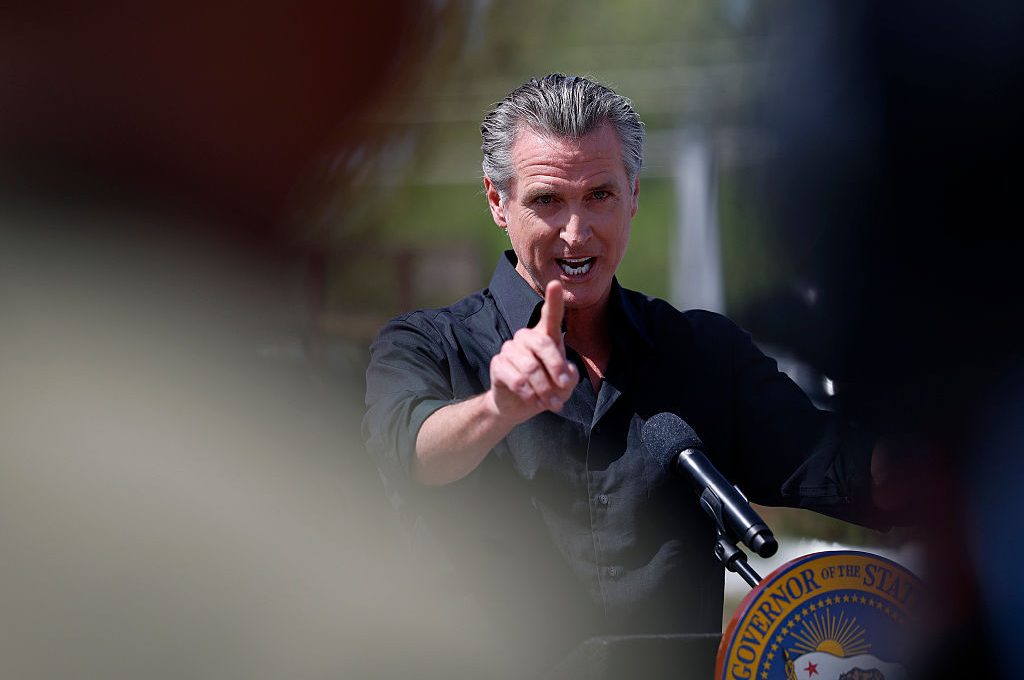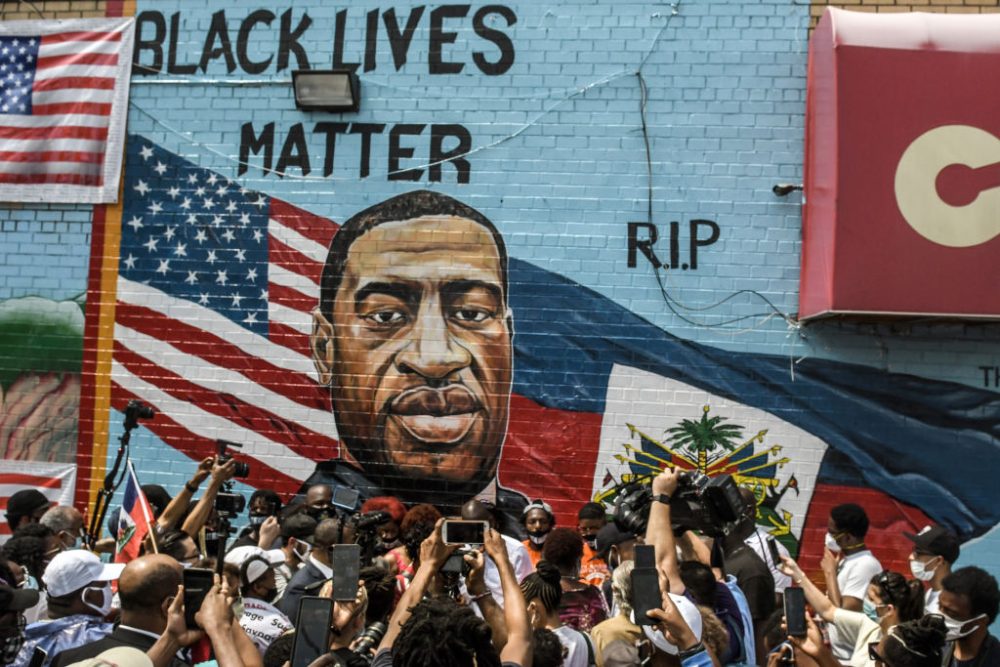The New York Times doesn’t much like the United Kingdom. By that, I mean the dystopian fantasy United Kingdom the Gray Lady has confected to explain Brexit and Boris Johnson’s electoral triumph in December. Objectively observed, Britain today is further to the left on public spending, equalities legislation and social attitudes than just a decade ago. Not if you scan the pages of the Times, however, where the Britain that glowers back at you is a grey and unpleasant land, a grim shudder of cruelty, racism and imperial nostalgia buffering about in its late dotage after renouncing civilized Europe. A dull, foreigner-free retirement community with nothing but Spam, Union Jack tea towels and global obsolescence to look forward to.
Eighth Avenue is especially thrilled by scenes of race riots in Britain’s streets. You might think the Times would better serve its readers by focusing on the much more violent unrest in its own country but, even allowing that the Times considers America its country, you underestimate its readers’ appetite for the trashy, implausible and yet utterly compelling Brexitland soap opera that Times editors have turned Britain into. Like all soap operas, escapism and miserabilism are in competition and Brexitland offers American progressives a break from their daily tyranny under the Orange Mussolini; serving up a British farce starring the Blond Nero and familiar storylines of populist excess, pervasive racism and democracy under assault, with the odd Russian spy plot twist thrown in.
The latest installment of Brexitland comes in an article from the Times headlined: ‘Prime Minister Boris Johnson Stirs Culture War Over Churchill Statue’. This was a news report, not an op-ed, so right from the get-go, you know where this is headed. The reporter explained that the British Prime Minister had been ‘on the defensive since the killing by the police of George Floyd in Minneapolis’. He has? I like to think I keep abreast of the news but this was the first time I encountered the notion that Boris Johnson had been put on the back foot by an event 4,000 miles away and entirely out of his control.
There was more, however. The Prime Minister had ‘stirred a fraught debate over symbols of his country’s past’. This is a mercurial interpretation of the facts in which the ‘fraught debate’ over historical symbols was ‘stirred’, not by rioters tearing down one such symbol, but by the Prime Minister commenting on that act. It’s like blaming a terrible play on the critic who pans it.
The report goes on to describe Johnson ‘claiming that the largely peaceful protests have been “hijacked by extremists intent on violence”’. Between the New York Times and the BBC, anyone with the foresight to have trademarked the phrase ‘largely peaceful protests’ must be coining it in right now.
Generously allowing that Johnson ‘uses Twitter sparingly’ (‘compared with President Trump’) ‘to communicate government policy rather than personal views’, the Times fretted that ‘he seemed to make an exception…to defend the legacy of his political idol, Churchill’. What was this fiery apologia for his hero?
Johnson said: ‘We cannot try to edit or censor our past. We cannot pretend to have a different history. The statues in our cities and towns were put up by previous generations. They had different perspectives, different understandings of right and wrong. But those statues teach us about our past, with all its faults.’
Is that you, Enoch?
The Times averred that the comments were ‘likely to prove popular within Mr Johnson’s Conservative party’, noting ‘growing discontent over the government’s handling of the COVID-19 pandemic’. Tories were ‘more united in their reaction to the protests and the culture wars that broke out following Mr Floyd’s killing’. Just in case anyone missed these signals, the Times introduced analysis from Prof Steven Fielding, a respected historian who sometimes writes for Coffee House. In addition to quoting Fielding on the historical and political contexts of Churchill criticism, the Times paraphrases him as saying ‘the wartime leader is such a popular and prominent figure in Britain that Mr Johnson stands to gain politically from defending him’.
[special_offer]
This is what bothers the Times. In Johnson’s mere noting of Churchill’s contributions to pummeling the Nazi war machine, the Gray Lady sees sinister politicking off the back of a culture war it has convinced itself Boris Johnson initiated. This is a kind of inverted fan fiction, which reimagines run-of-the-mill political cynics as malefic shape-shifters and restive electorates as incipient goose-steppers.
The irony in all this is that Johnson has been strikingly restrained over the riots. He does not want scenes of police officers thumping young black men and appears to believe that allowing lockdown-defying protests, rather than overpolicing them, is the best way to prevent a full-scale street war between protesters and the law. In following his liberal instincts, he also follows the example of his monstrous hero. As Home Secretary, Churchill was scolded by right-wingers for his cautious handling of the Tonypandy riots, delaying the deployment of soldiers to allow the local constabulary to bring looting under control.
Those of us who don’t like Boris Johnson or his politics resent being put in the position of having to defend the man simply because his critics have lost all sense of perspective about politics in our country and their own. The New York Times’s fanciful Brexitland scripting confirms that it understands Britain as well as it does the United States.
This article was originally published on The Spectator’s UK website.

























